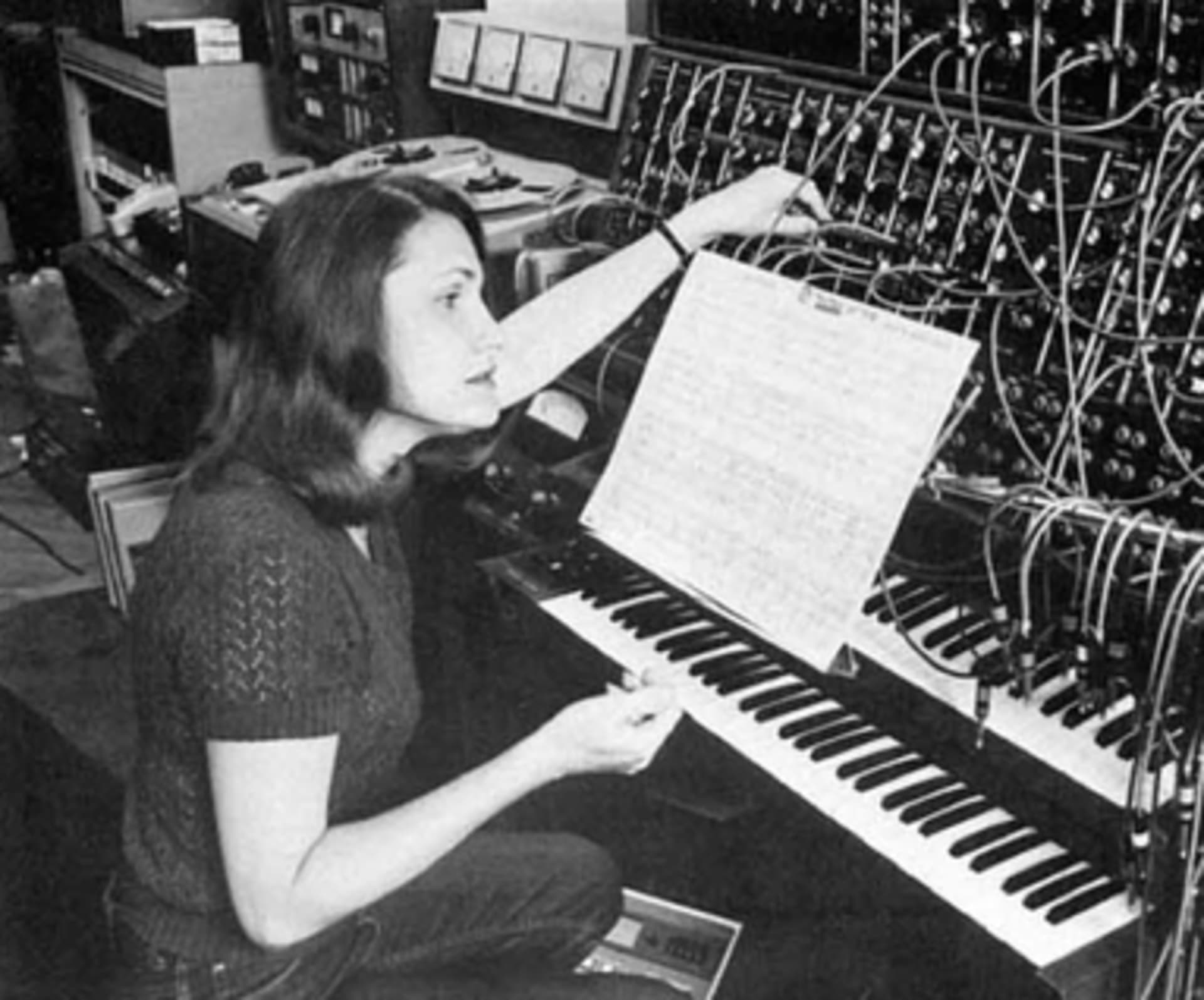
‘Woman’ is not a genre of music
Women making electronic music. If recent articles would have you believe, this is something new, something fresh that’s only starting to happen now. It’s as though these wacky gals only encountered synthesizers after La Roux decided to slap some gel in her hair and take a photo. This is, of course, nonsense. Women have pioneered an exceptional amount of electronic music’s history, from the musique concrète techniques of BBC Radiophonic Workshop co-founder Daphne Oram to the NDW of Malaria. The hands of these woman move over the pulse of electronics more so than ever, their methods and creativeness still being used and expanded upon today by artists like Brittany Gould, Kathleen Hanna, and Jessica Rylan, whose modular synthesizers are used throughout many genres of modern music. To state that electronic music is endowed with a ‘masculine aura’ presents a history re-write that not only marginalizes the contributions of past, present and future female electronic artists, it also novelizes it.
“The problem isn’t a cult of masculinity in electronic music.” says Mollie Wells of dark pop band Funerals. “It’s the cult of masculinity. People tend to think of electronic music as this monolithic whole, but there’s a vast difference between scenes. The dudes I know making minimal synth would never tell you it’s a masculine place. But, if I’m being honest, techno sometimes is. There’s a compulsory masculinity in that world, the assumption that if you’re making something club-centric, you must be a dude. But Star Eyes, Lauren Flax, Anja Schneider, AGF, Ellen Allien, ADA …they don’t make feminine music. It’s not male or female. When Apparat collaborated with Ellen Allien on ‘Orchestra of Bubbles,’ the music was no more feminine than when he made ‘Walls’ on his own. Arguing that any of those songs are gendered says way more about the writer making the argument than the musicians making the music. Arguing that the sex of the person making it has anything to do with it, unless the songs are clearly about that…it’s just futile. Delia Derbyshire, Daphne Oram, Wendy Carlos, Doris Norton, Suzanne Ciani, Cynthia Webster…..even Goldfrapp and Add N To (X)’s Ann Shenton. These women weren’t on the periphery of electronic music…they pioneered it. “Woman” is not a genre. Stop acting like we’re a passing fad.”
Kristi Schaefer of Denver experimental group Hideous Men agrees. “I think this trend in the mainstream about noticing that women are making electronic music is another way of pointing out that when women make any kind of music, it’s going to be viewed differently. I feel a lot of conflicting ways because part of me is like – yes, women should be praised for battling the additional restrictions put on them by sexism when they make music, but part of me is like, get over it, we don’t use our genitals to play our synthesizers. In my experience women are often thought of as sidekicks or accessories in the music world, and electronic music is often treated as “less-than” rock, or easier than playing string instruments so being a woman with a keyboard is like one of the most easily dismissed ways of making sound. It’s another fight women didn’t ask for. I wonder if people are surprised that women make electronic music because people assume it’s more complicated than acoustic music? Like they’re impressed women have the capabilities to understand synthesis?”
The fact of the matter is that women are not experimenting with electronics ‘now more than ever’. We just have the technology to find out about it easier. While this gives wonderful underground festivals like TITWRENCH the possibility to flourish, it also makes it easier for writers to group them under the faux-genre umbrella of ‘female-fronted music’. So should we never speak about ‘women in music’? Rather, let’s speak about music. Let’s discuss talented artists and bands that are impressive because of what they’re doing, not because a woman is involved. New York City/Kuwait artist and musician Fatima al Qadiri perhaps summed it up best when we spoke: “Yes, music production is overwhelmingly a boy’s club. That’s a boring fact. The only thing you can do is deliver your vision. At the end of the day that’s what really matters, not gender. Case in point: Wendy Carlos was born a man and became a woman.”
Daniel Jones is a music promoter and creator of the subculture reconceptualization & aesthetics tumblr Black Black Gold.
Published November 22, 2011. Words by Daniel Jones.
